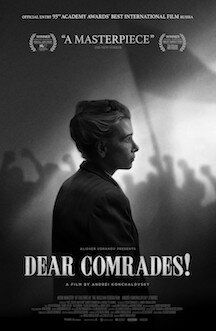Direction: Mona Fastvold
Country: USA
Norwegian-born Mona Fastvold’s The World to Come presents a bold, revolutionary love story between two women living in a frontier rural farm in 1950’s upstate New York. Following a screenplay by Ron Hansen (The Assassination of Jessie James by the Coward Robert Ford) and Jim Shepard (And Then I Go), the director approaches the subject - the self-educated Abigail (Katherine Waterston) - with poetic expression as she narrates her diary entries and clear-cut inner thoughts.
Her burdensome, solitary life - she and her hardworking husband Dryer (Casey Affleck) recently lost a child to diphtheria - is suddenly struck by joy and astonishment when the confident and gracious Tallie (Vanessa Kirby) moves to the neighboring farm with her unsympathetic and insensitive husband, Finney (Christopher Abbott in his second collaboration with the director after performing in her 2014 debut feature The Sleepwalker).
These courageous women have wasted a lot of time living an unhappy life. Certain of that fact, they resolve to spend every possible minute with each other, defying their husbands and the conservative norms of the time.
Unlike Portrait of a Lady on Fire, this romantic period drama was not taken to a higher level due to its awfully familiar tones. Fastvold seems happy with just unpacking complex feelings and creating a mild uneasiness that lurks in the bucolic landscape. The pace, deliberately languid, is complemented with a glowing, well-composed cinematography, but the tension slowly fades away, leaving an illusive dreaminess floating in the air that is not completely cut and dried to me. I wish I could have liked this film more than I did.








































